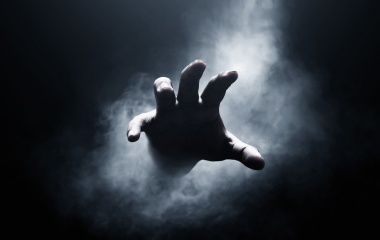
“Therefore, the Jewish people will not eat the gid hanasheh, sciatic nerve, that is on the hip joint, to this day” (Breisheet 32:33). Sefer Breisheet provides much information on how not to act; we read about every kind of social dysfunction—be it drinking, sibling rivalry, jealousy, greed or more violent crimes such as robbery, kidnapping, rape, incest and murder.
Unfortunately, many of the stories of Breisheet repeat themselves throughout history, time and time again, with only the names, dates and places changing. Yet in the entire book of Breisheet, there is actually only one negative command—one that for most of us has little practical significance—namely, not to eat the sciatic nerve.
The Torah directly links the prohibition of gid hanasheh to Yaakov’s struggle with “the man who wrestled with him until daybreak” (Breisheet 32:25), causing Yaakov to “limp on his thigh”. Left unclear is why there should be a permanent mitzvah to commemorate this. There are no mitzvoth to commemorate Akeidat Yitzchak, Yaakov’s difficulties with Lavan, the selling of Yosef, or a host of other crucial stories that helped form the Jewish people. The struggle with this anonymous man would seem to be one of the least significant stories in Breisheet and, not surprisingly, takes up only a few verses. Yet it and no other has been “sanctified with His commandments”. Why?
The story of Jacob’s wrestling match is introduced by the phrase “And Jacob was left alone”. The prohibition of gid hanasheh is thus a permanent reminder of the importance of, and a prelude to, the mitzvah of honouring parents. How could an aging father with four wives and twelve children be left alone in the middle of the night? Could not even one son accompany him? And when Yaakov did not return to his family, should not a team of children have gone to search for him?
The result of leaving someone alone is at the root of the tragic fate of Yosef. Yaakov, apparently not recognizing the hatred of the brothers towards Yosef (not dissimilar to Yitzchak’s failure to recognize the disdain of Eisav for all things spiritual), sends Yosef to go to Shechem, alone. If only Yaakov had accompanied him!
The Torah (see Devarim 21:1-9) mandates that the elders in the town nearest to an abandoned corpse must publicly declare that they were not responsible for the death of the slain one—“responsible” being defined as not escorting those who are left to be alone.
The mitzvah of escorting others is so crucial that we are even obligated to escort those who are no longer living to their final resting place. This, despite the fact that the obligations to the dead pale in significance to that required towards the living; thus, for example, there is no technical prohibition of lashon hara, evil speech, about the dead—something that allows for much historical research.
The Radak (Breisheet 32:33) claims that the brothers, realizing their mistake, and as a (belated) display of honour to their father, took it upon themselves not to eat from the sciatic nerve. At Sinai, G-d validated their repentance, prohibiting the gid hanasheh for all future generations.
At the same time, Yaakov’s limp might be viewed as a self-inflicted wound. “And Jacob was very afraid and distressed” (Breisheet 32:8). While understandable, his fear betrays a certain lack of trust in G-d, who had promised him that “I am with you and I will protect you wherever you go and I will bring you back to this land” (Breisheet 28:15). Like Moshe Rabbeinu, who questioned G-d’s promise to redeem the Jewish people from Egypt and was nearly killed on his way back to Egypt (Shemot 3:24), Yaakov would be attacked on his way back to Israel.
Thankfully, Yaakov’s fears were misplaced. Immediately after his encounter with his unknown assailant, Yaakov has an emotional and peaceful reunion with his brother. Yaakov returns home in peace, and together with his brother they bury Yitzchak.
The gid hanasheh teaches that no matter what may befall us, we must not fear. Yes, there will be ups and downs, even many times when all hope seems lost. Like Yaakov, we may be forced to flee and we may be forced to reside amongst liars and cheaters. Yet ultimately, we will return home in peace. We can hasten that peaceful return by ensuring that no Jew is left alone.



